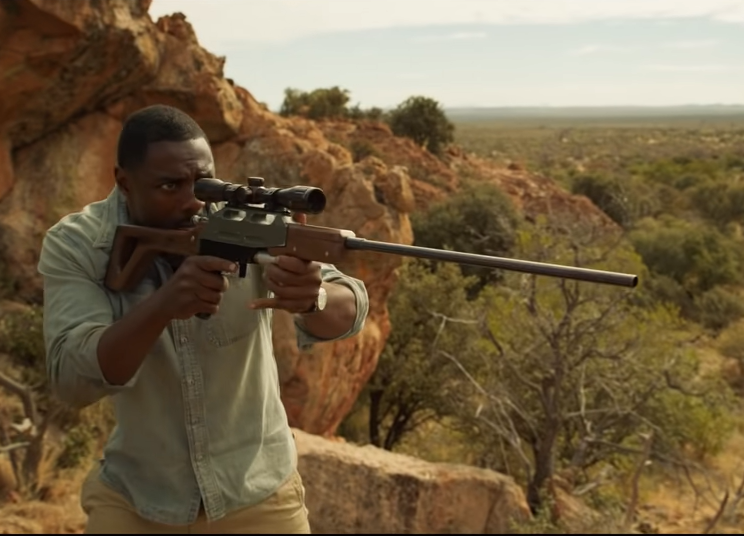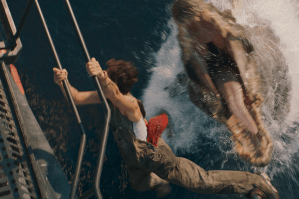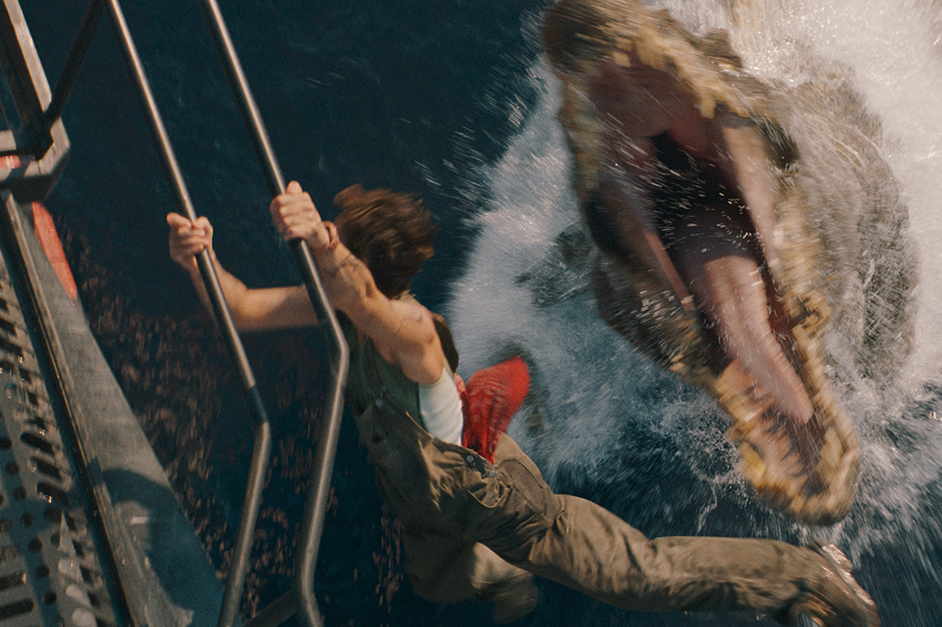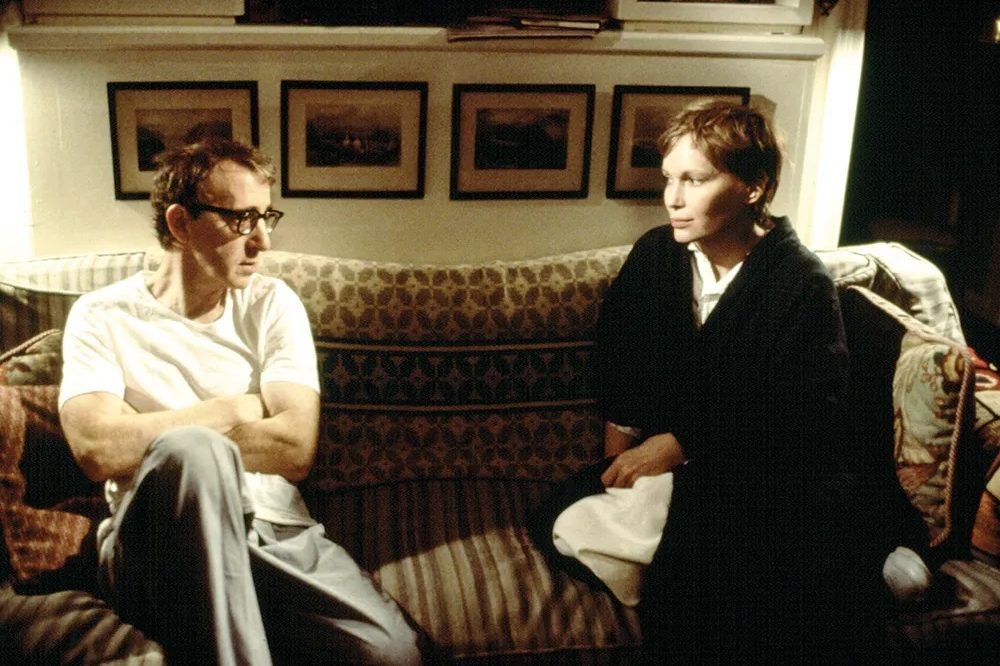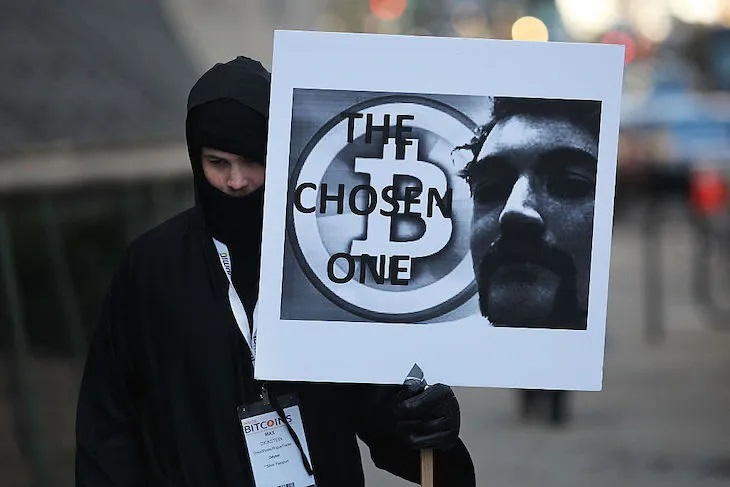Let’s get one thing out of the way up front: yes, Idris Elba punches a lion in this movie, and yes, that part’s pretty great. If only the rest of Beast reached those heights. Director Baltasar Kormákur (no stranger to survival thrillers, after previously helming Everest and Adrift) has put together a late-summer actioner that’s entertaining enough, but probably a little too tame for its own good.
Following the unexpected loss of his wife to cancer, American doctor Nate Daniels (Elba) brings his two daughters Mer (Iyana Halley) and Norah (Leah Jeffries) into the African bush to visit Nate’s old friend Martin (Sharlto Copley, in full great-white-hunter mode). There’s some standard-fare ruminating about Nate’s lack of attentiveness and need to engage more with his daughters, and then it’s off to the wilderness.
Kormákur doesn’t waste any time setting up the stakes. A giant male lion, driven mad with rage after witnessing the slaughter of his pride by a band of local poachers, is rampaging across the savanna and killing every human he can find. Shortly after Nate and company discover a village whose inhabitants have all been mysteriously slain, the crazed lion splits up the group and attacks Martin’s Land Rover directly. Through a series of subsequent mishaps, the Land Rover promptly crashes, stranding Nate, Martin, and the two girls in the lion’s territory. Mayhem ensues.
Sure, it’s the simplest of premises, but here the survival drama is executed pretty well, thanks to some better-than-average CGI work (a lot of effort clearly went into making the lion feel “weighty”) and exhilaratingly long, one-take action sequences. Characters are generally likable and feel fully realized, thanks to a lengthy prologue. And clocking in at a pleasantly zippy ninety-three minutes, it never wears out its welcome.
Unfortunately, Beast hits its peak early on, when the lion first attacks the vehicle in a sequence vaguely reminiscent of Jurassic Park, and the movie never quite recaptures the taut energy of those moments. This is mostly because the film, against its own better instincts, repeatedly pulls its punches. Most notably, Kormákur commits the cardinal sin of creature features: anthropomorphizing his subject. By depicting his lion antagonist killing for revenge, like a four-footed Freddy Krueger, Kormákur gives the lion a set of “motives” that are recognizably human. But the untamed natural world is frightening precisely because the only “motive” involved is survival. A charging lion, after all, can’t be reasoned with.
What would take a film like this one from unsettling to terrifying is the presence of genuine predation, of humans finding themselves transformed from self-assured apex predators into hapless prey. And yes, that means someone probably needs to get eaten: it’s hard to think of anything more primordially upsetting than seeing a character turned into a carcass. For that matter, perhaps the strangest thing about Beast is how, despite sporting an R rating, the film feels positively mild — it seems to carry the rating just because of some gnarly-looking claw injuries. 127 Hours this is not.
None of this is to suggest, though, that Beast isn’t at least somewhat entertaining. Indeed, while its narrative traditionalism hurts the movie in some ways, that same sensibility improves it in others. In particular, Kormákur (and Elba) put forward one of the most positive visions of distinctly masculine virtue in recent memory. Nate isn’t a bodybuilder or alpha-male warrior: he’s a white-collar professional and dad trying to protect his children in an impossible situation. This lack of training, however, does not exempt him from his paternal responsibility to sacrifice himself for others. By film’s end, he must place his physical body on the line — using all his strength and suffering terrible injuries in the process — to defend innocent life. Cleverness has its place, but in extremis, a measure of old-school physical heroism is still required. Such an ethos is increasingly rare onscreen, and it’s gratifying to see it celebrated here.
And that’s why it’s a shame that Beast’s back half never quite kicks into nerve-jangling high gear. Elba is likeable enough, and the premise here is solid enough, that one could really turn up the dial on the survival-scenario insanity without losing the audience. Where are the hyenas? Crocodile attacks? The range of potential escalations is virtually infinite, but Beast shows its hand early on and never goes all in. For some more genuinely unsettling versions of the same scenario, try Frozen (the one about the ski lift, not Elsa) or Backcountry.
As far as throwaway summer thrillers go, there are worse ways to spend an evening. But you won’t miss much by waiting for streaming.



